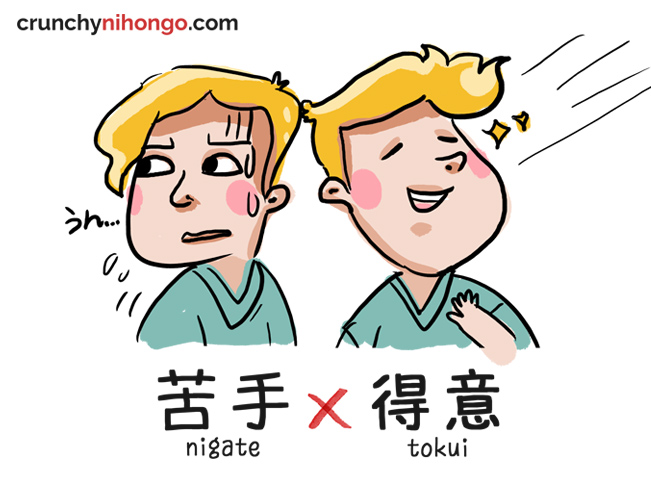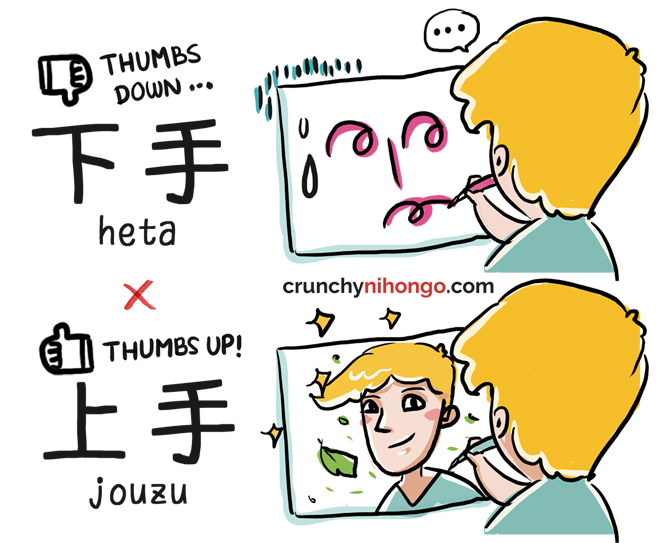Hi ! We hope this site helps you! ٩(ˊᗜˋ*)و As an Amazon Associate, we earn from qualifying purchases without additional cost. Click to read more about our Privacy Policy or Affiliate Disclosure
Today we’re gonna learn the difference between these 2 seemingly similar words: 苦手 (nigate) and 下手 (heta). Both seems to mean “Not good at something”. But if you check out their kanji, you can immediately understand that they have a different kind of nuance.
苦手 (nigate) and 得意 (tokui)

苦手 (nigate) is using 苦 kanji which can means worry, bitter, suffering and hardship.
So when this word is being used, it doesn’t mean that someone is unskillful, but they are not comfortable of doing it.
The direct antonym of 苦手 (nigate) is 得意 (tokui) which means one’s strong point or one’s specialty. Another meaning (but unrelated with this topic) of 得意 (tokui) is prosperity, pride or frequent costumer.
下手 (heta) and 上手 (jouzu)

下手 (heta) is using 下 kanji which means down/bottom/below. You can think of 下手 (heta) as “thumbs-down”. Like how you would “Boo!!” someone whose skill is not good. This should make things easier to memorize. The direct antonym of 下手 (heta) is 上手 (jouzu) which means skillful and you can think of it as “thumbs-up!”.
Note that it can be felt as cocky if you said that you are 上手 (jouzu) at something. It’s better to only use this word to compliment other people’s skill. In that case use 得意 (tokui) instead, to say that you’re comfortable or confident at doing something to imply that you are good at it.
We hope that this article help you to distinguish which word you need to use in your situation. Happy learning! 。゚✶ฺ.ヽ(*´∀`*)ノ.✶゚ฺ。

I always have trouble understanding the differences, especially with 苦手 and 得意, but this was immensely helpful in clearing up their usage and implied meanings!! Thank you so much for the to-the-point article and illustrations! 🙏
We’re glad it helps! You’re welcome 😉
ganbatte